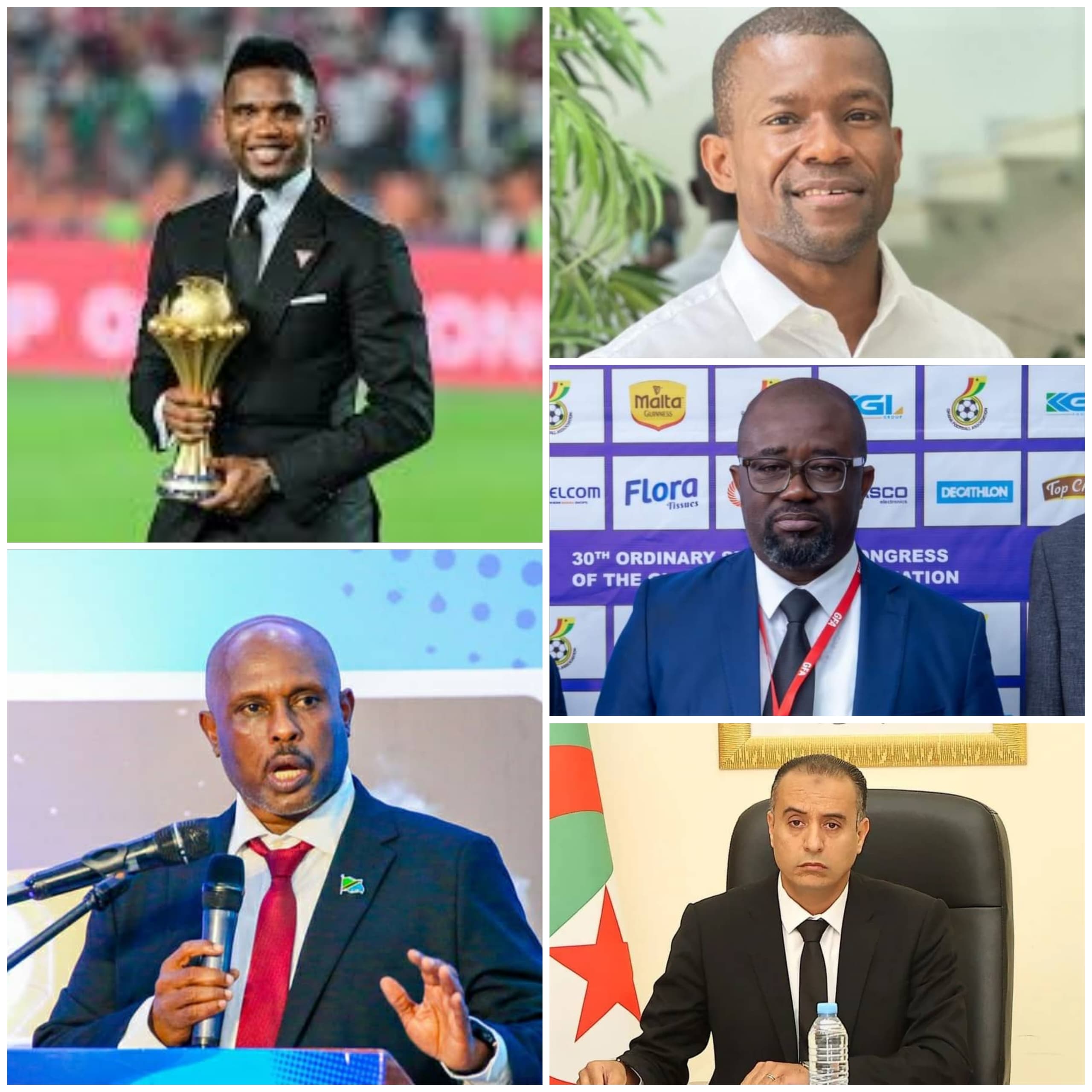Easy CAF Executive Committee positions for Eto’o, Okraku, Karia and Raji today

The Confederation of African Football (CAF) is set to hold its 14th Extraordinary General Assembly in Cairo, Egypt on Wednesday, marking a decisive moment in the battle for the CAF Executive Committee.
With voting underway, the election of nine members—eight men and one woman—to the continent’s top football decision-making body is unfolding along regional lines, where uncontested candidates like Tanzania’s Wallace Karia, Ghana’s Kurt Okraku , Cameroon’s Samuel Eto’o and Liberia’s Mustapha Raji are already guaranteed seats, intensifying the scramble for the remaining positions.
The election, driven by CAF’s zonal unions, sees automatic placements for candidates running unopposed. Kurt Edwin Simeon-Okraku, president of the Ghana Football Association, has secured his spot representing West African Football Union Zone B (WAFU B) without a challenge, a testament to his strong backing within the region.
Similarly, Mustapha Ishola Raji of the Liberia Football Association will automatically claim the WAFU A seat, reflecting his unchallenged dominance in West Africa’s Zone A.
These uncontested victories, confirmed ahead of Wednesday’s vote, highlight the strategic influence of regional blocs but have sparked debates about the lack of competition in some zones.
The remaining six men’s seats are fiercely contested, drawing a diverse field of candidates from across CAF’s five zonal unions.
Tanzania’s Wallace John Karia (CECAFA) faces no opposition in his region, securing another automatic seat and bolstering East Africa’s presence.
Algeria’s Sadhi Walid (UNAF) stands alone in North Africa, likely ensuring his place as well as legendary footballer Samuel Eto’o who needed a decision from CAS to enable him to stand after CAF’s decision to bar him from contesting from the UNIFFAC zone.
However, the crowded COSAFA race promises drama as Southern African nations vie for influence.
The COSAFA zone, with four candidates—Elvis Raja Chetty (Seychelles), Sopha Mohamed Ally Samir (Mauritius), Feizal Ismael Sidat (Mozambique), and Alfred Randriamanampisoa (Madagascar)—is a battleground, where only two will emerge victorious.
The regional allocation has fueled tensions, with some delegates questioning whether the uncontested seats—Okraku, Raji, and potentially Karia and Walid—undermine the democratic spirit of the election.
“This is about power consolidation,” a CAF insider whispered. “Zones with single candidates are locking in their votes, leaving others to fight it out.” The COSAFA bloc’s multiple entries have raised eyebrows, with accusations of vote-splitting or strategic overreach, while smaller nations hope to punch above their weight.
For the female slot, the Congolese Football Association’s Ditabala Member is the sole nominee, guaranteeing her a place and underscoring CAF’s push for gender representation.
Her automatic selection contrasts with the men’s race, where the contested seats promise a nail-biting finish on Wednesday.
The outcome will shape CAF’s leadership as it navigates post-scandal reforms, prepares for the 2026 FIFA World Cup, and addresses the continent’s footballing ambitions.
CAF President Patrice Motsepe, running unopposed for a second term, will oversee the proceedings, but the real intrigue lies in the Executive Committee’s composition.






